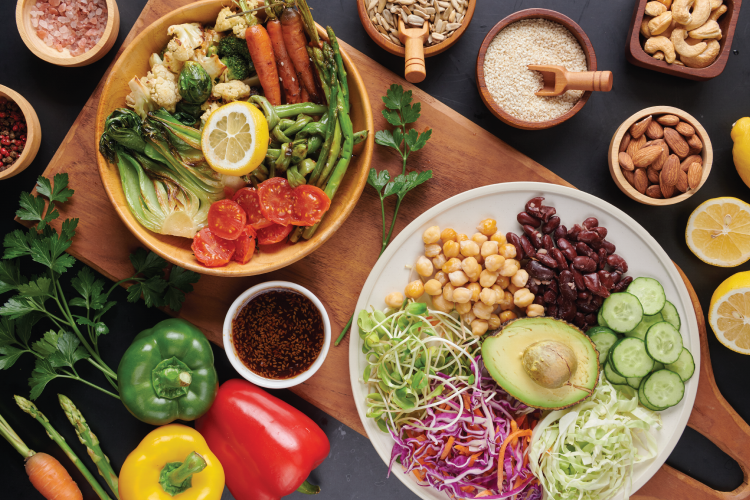
High-fiber diets are often hailed as a healthy choice, and for good reason. They provide a wide range of health benefits, including improved digestion, weight management, and a reduced risk of chronic diseases. However, one common side effect that many people experience when they first start a high-fiber diet is an increase in gas. This unexpected consequence can be discomforting and embarrassing. In this blog, we will explore the reasons why a high-fiber diet can lead to increased gas and provide a list of vegetables known to cause gas. Understanding the causes and making informed dietary choices can help you manage this issue while still enjoying the numerous benefits of a high-fiber diet.
2. Cabbage: Cabbage, including both green and red varieties, is high in fiber and raffinose. While it's a nutritious addition to your diet, it can result in excess gas.
3. Cauliflower: Similar to broccoli, cauliflower is rich in fiber and can lead to gas production due to its raffinose content.
4. Onions: Onions contain fructans, a type of fiber that can be challenging to digest for some people, leading to gas and discomfort.
5. Garlic: Like onions, garlic is high in fructans, making it a potential trigger for gas and bloating in individuals with sensitivities.
6. Beans: Beans are a well-known source of dietary fiber and can cause significant gas production due to their complex carbohydrates and oligosaccharides. Soaking and cooking beans can help reduce their gas-producing effects.
7. Lentils: Lentils, also a legume like beans, contain complex carbohydrates and fiber that can lead to gas. Rinsing lentils and cooking them thoroughly can help mitigate this effect.
8. Artichokes: Artichokes contain inulin, a type of fiber that can contribute to gas production in the digestive system.
9. Asparagus: Asparagus contains a carbohydrate known as raffinose, which can result in gas when consumed in large quantities.
10. Bell Peppers: While not as notorious as some other vegetables on this list, bell peppers can cause gas for some individuals due to their fiber content.
Starting a high-fiber diet can be a positive step toward improving your overall health and well-being. Fiber is essential for maintaining a healthy digestive system, managing your weight, and reducing the risk of various chronic diseases. However, it's crucial to be aware of the potential side effects of increased gas when transitioning to a high-fiber diet.
The gas experienced when beginning a high-fiber diet is often temporary and a sign that your digestive system is adjusting to the dietary changes. To minimize the discomfort, you can gradually increase your fiber intake, maintain proper hydration, and be mindful of consuming vegetables that are known to cause gas. Additionally, cooking, soaking, and other food preparation methods can help reduce the gas-producing effects of certain foods.
Remember that the benefits of a high-fiber diet far outweigh the temporary inconvenience of increased gas. So choose Gas-O-Fast Asli Jeera to eliminate the drawback of increased gas!
Disclaimer This blog solely intended for the educational/informational/awareness purposes and is not a substitute for any professional medical advice, diagnosis or treatment. Please consult your doctor/healthcare professional before acting on the information provided on the blog. Reliance on any or all information provided in the blog, is solely at your own risk and responsibility. Mankind Pharma Limited shall not be held liable, in any circumstance whatsoever.
Recent Posts
POPULAR CATEGORIES
POPULAR TAGS